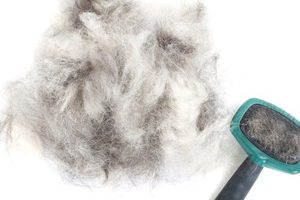
Shedding pets can drive an allergy sufferer up the wall in winter.
It may not be hay fever season anymore, but that doesn't necessarily mean relief for allergy sufferers. Winter allergies are a bigger problem than most people realize, and they are mainly caused by allergens that are found indoors, which means that the home can't serve as an escape from allergies like it does in the warmer seasons. These are the most common causes of allergies during the winter:
- Mold. The cool, damp air of winter is a perfect environment for mold growth, and even if mold has been present in your house for a while, you'll likely feel its effects more in the winter, when the house is generally less ventilated and you spend more time inside. Toxic mold spores can also trigger serious reactions like nausea, dizziness and motor control issues, so if you suspect that mold is present in your home, have it checked by a professional home inspector immediately.
- Dust mites. When people are kicking up dust in the house more often, the remains of these microscopic pests are released into the air, where they can cause allergic symptoms. A good way to prevent this is to clean dusty surfaces regularly.
- Pet dander. Again, when both pets and humans are inside more often, dander accumulates and is stirred up, worsening animal allergies. Keep pets bathed and groomed to mitigate this effect.
- The Christmas tree. If you have pollen allergies, bringing a Christmas tree into the house can aggravate them, though it's unclear whether this can be attributed to actual pollen or just the strong pine odor.
Of course, if you have a home air purifier, all these factors are considerably reduced. If you need help finding the best air purifier for allergies over the winter, contact us at US Air Purifiers.